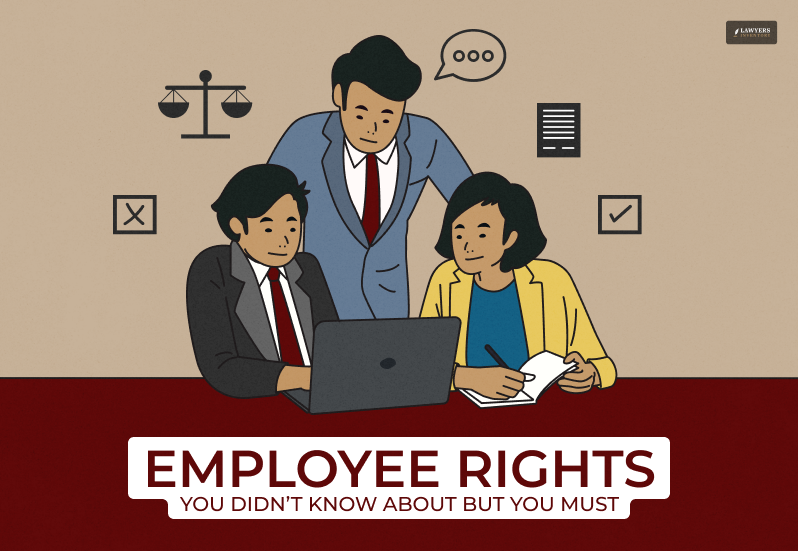The 3 Common Signs Of Wage Theft By Your Employer
In today’s world, with the cost of living continuously on the rise, it’s getting harder than ever to make ends meet. To add to this already difficult situation, wage theft at work is a growing concern. Wage theft is a term used to describe the illegal withholding of employee wages or benefits by an employer.
This is a direct violation of several labor laws, not to mention that it creates a stressful work situation. It is imperative that your salary remains stable and consistent unless any valid reason calls for a change. In case you notice any warning signs indicating that something might be off, you must take prompt action.
It can take various forms, such as not receiving overtime pay, being paid less than the minimum wage, or having money deducted without a clear explanation. Wage theft can have a significant impact on an employee’s financial stability, making it harder for them to pay their bills, take care of their families, and meet their basic needs.
It is a serious issue that affects many workers across different industries and should be addressed with urgency to ensure a fair and just work environment for all. It is becoming increasingly more work to make ends meet these days.
Making things even worse is when you experience wage theft at work. It happens when employees are not paid the wages they have rightfully earned. This problem can take different forms, such as not receiving overtime pay, being paid less than the minimum wage, or having money deducted without an apparent reason.
Here Are Three Common Signs Of Wage Theft By Your Employer

This informative article will shed light on several red flags that you should keep an eye out for to ensure that you are fairly compensated.
1 – Inconsistent paychecks
One of the alarming signs that you may be experiencing wage theft is when your paychecks seem to have a mind of their own. If you notice that your pay amounts keep fluctuating without any reason, it’s time to take a closer look. It’s important to note that your pay should be predictable based on the hours you’ve worked and any agreed-upon deductions.
If you’re working the same hours and your tax deductions remain constant, but your paycheck amounts keep changing, it’s a clear indication that something is wrong. This could be due to various reasons such as illegal deductions, unpaid overtime, or inaccurate record-keeping. It’s crucial to understand that wage theft can impact anyone, regardless of their occupation or industry.
Therefore, it’s essential to keep track of your pay stubs and payslips to ensure that you’re being paid fairly. If you notice inconsistencies in your paychecks without a reasonable explanation, you should report the issue to your employer and consult with a legal expert. Remember, you have the right to fair pay for the work you do, and wage theft is illegal.
Keep a record of your work hours, including any overtime. You’ll need these records later if you need to talk to an employment lawyer, such as the team at HKM. Before you contact a lawyer, reviewing your employment contract or any agreements you have with your employer is a good idea. That way, you fully understand the terms of your pay and will know if wage theft occurs.
Taking Extra Care…
Keeping track of your working hours is a smart move as it can serve as evidence in case of a dispute with your employer in the future. In such situations, it’s crucial to have a reliable source of legal guidance and support. The experienced legal professionals at HKM can help you better understand your rights as an employee and provide you with the necessary assistance to ensure they are protected.
Before you reach out to a lawyer, it’s advisable to review your employment contract or any agreements you have with your employer. This will help you gain a better understanding of the terms and conditions of your pay and identify any instances of wage theft or other employment law violations.
Being proactive about your wages is essential as it can help you avoid potential legal issues down the line and safeguard your hard-earned income. By staying informed and taking appropriate action, you can ensure that your rights as an employee are respected and protected at all times.
2 – Not getting overtime pay
Another clear sign of wage theft is when you find yourself working overtime but not receiving the pay you should be getting. When you work more than 40 hours a week, your employer generally must pay you at a higher rate, often 1.5 times your regular hourly wage, for those extra hours.
Sometimes, employees are entitled to receive overtime compensation for working more than their standard working hours. This is a legal requirement that employers must comply with. However, in certain cases, employers may try to avoid paying this compensation to their employees.
One common example is wage theft cases, where employers may come up with excuses or find ways to label the extra hours worked differently. This can result in employees not receiving the overtime pay they have rightfully earned, which can lead to financial difficulties, frustration, and a feeling of being undervalued.
It is important for employees to be aware of their rights and to speak up if they suspect that their employer is not paying them the correct amount of overtime compensation.
3 – Uncompensated work
It’s important to be aware of signs of wage theft in the workplace. One such sign is when you find yourself in situations where you must work without receiving proper compensation for your time and effort.
One common form of wage theft is when you’re asked or expected to perform work-related tasks before or after your official work hours. This practice, known as working off the clock, is illegal and can result in significant losses for employees.
Another form of wage theft is the expectation of working during designated break times. Breaks are meant to provide employees with the opportunity to rest and recharge. If your employer expects you to work during breaks, it’s a clear indication of wage theft. Your break time should be your own, and you should be compensated for all the time you spend working.
Conclusion
It appears that you have gained a deeper understanding of the issue of wage theft. Wage theft is a serious concern that can manifest in various forms, such as failure to pay employees the minimum wage or overtime or misclassification of employees.
As an employee, it is crucial to know your rights and obligations and take appropriate action if you suspect wage theft is occurring at your workplace. This may involve reporting the matter to the relevant authorities. Additionally, consult a legal professional and seek assistance from a labor union. Ultimately, taking action against wage theft is crucial not only for your well-being but also for broader social and economic justice.
Read Also:
- How To Choose A Good Lawyer
- Who Is An Administrative Lawyer?
- Who Is A Health Lawyer And When To Hire Them?











1 Reply
Law and Order in Wall Street
April 12, 2024 at 10:17 am
[…] use it for personal gain or transmit it to others who trade on it. These could include executives, employees, consultants, or even government officials who obtain material information through their […]
Reply